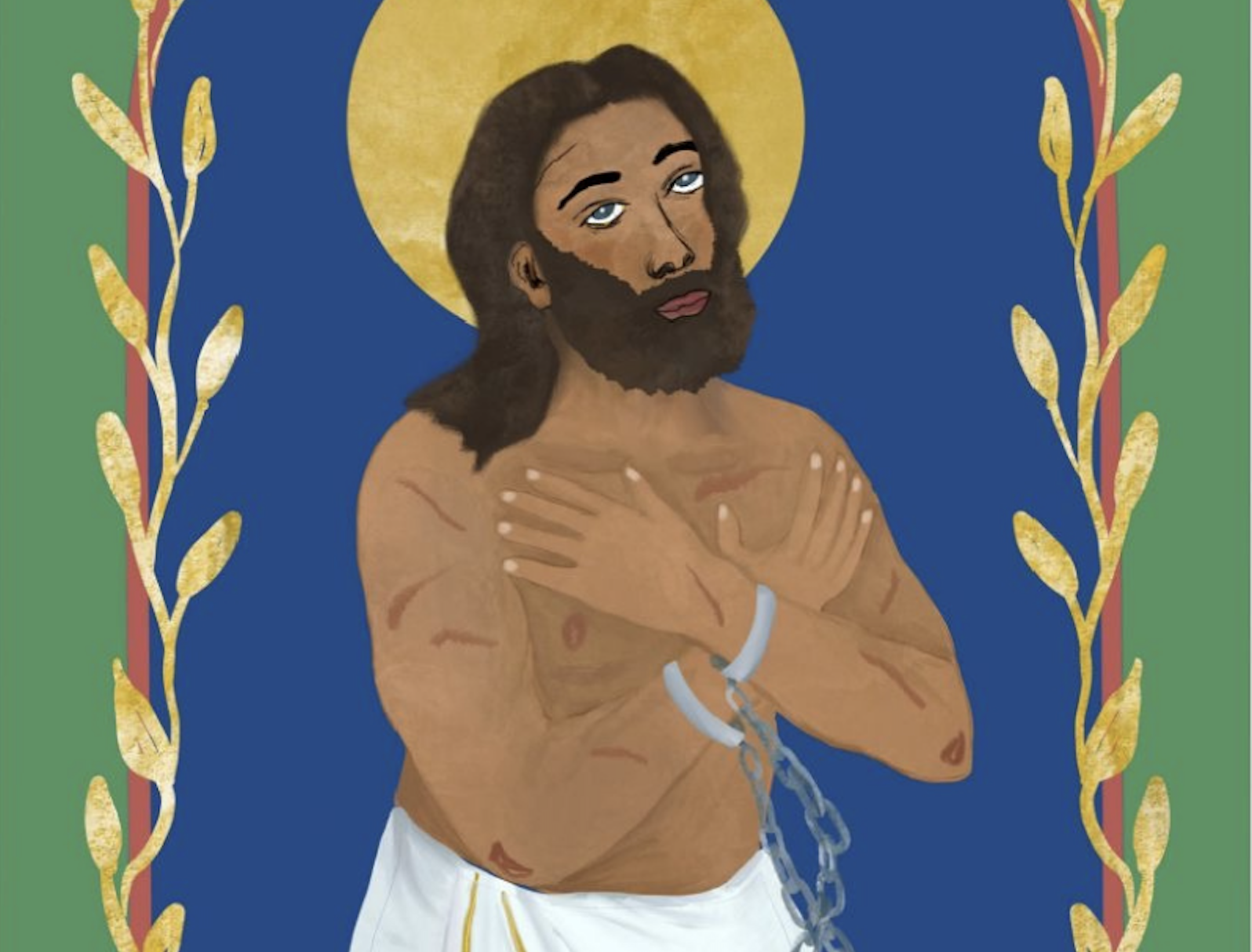
In the story of God, there are no coincidences, not even the way I stumbled upon the life of St. Devasahayam.
Growing up Hindu, I had no idea Catholic Indians existed. I knew about Mother Teresa and her work with the poorest of the poor in my ancestral city, but I never made the connection to the existence of Catholics among people of Indian ancestry. I certainly had no inkling that further south, a man known as Devasahayam Pillai was on the road to sainthood.
Born Neelakanda Pillai in 1712 to an upper-caste Hindu family, he served as a high ranking court official for the Hindu king in Travancore. It was there he encountered Captain Eustachius DeLannoy, a Dutch naval officer and prisoner of war helping modernize the king’s army in exchange for a pardon after his capture. DeLannoy, a devout Catholic, would befriend Neelakanda over the course of their work together, and eventually help him understand suffering through the lens of the Christian faith.
Neelakanda was struggling with a devastating span of severe material losses negatively impacting his standing. He performed many rituals attempting to placate the Hindu gods but found no relief. He felt he was being punished by God, but could not understand why. Upon witnessing his despair, Captain DeLannoy consoled him, sharing with him the story of Job from the Scriptures. Through this encounter, Neelakanda gained a new perspective on suffering, deeply moved by Job’s example of trust in God despite his own misery.
This understanding transformed Neelakanda’s life. He came to believe in the truth of the Christian faith and was baptized in 1745, taking the name Devasahayam, meaning “Lazarus” or “God is my help” in Malayalam, his native tongue. He also dropped the name Pillai, which was a caste designation, a system he now disavowed. His conversion lowered his social status significantly. Only those of the lowest castes were permitted to convert in Travancore, and he had now joined their ranks regardless of any previous upper caste affiliation. In fact, his prior standing made it all the more scandalous.
Despite this, Devasahayam began living his new Christian faith openly within the palace, as well as denouncing the injustices of the caste system. He associated freely with members of lower castes and argued against the superstitions of the Brahmins. Many fellow soldiers converted. This angered the ruling class and other Hindus, including his own family. When the rulers ordered the persecution and exile of Christians, Devasahayam offered himself as their first prisoner. Having repeatedly refused to renounce Christ, he was eventually branded a traitor, imprisoned, tortured, and banished to a forest for three years where he was beaten daily. Devashayam remained steadfast in faith, despite his suffering, trusting in God. Those who encountered him were moved by his kind and joyful demeanor amid humiliating persecution.
After three years of torture and three failed death sentences, Devasahayam was martyred secretly in 1752. St. Devasahayam became the first Indian layman and convert to be canonized by the Roman Catholic Church on May 15, 2022.
Having no connection to the Indian Catholic or South Indian community, I hadn’t even heard the name Devasahayam Pillai until the week prior to his canonization, which also happened to be the week I was heading to the Coming Home Network to record an episode of The Journey Home. God’s timing is perfect. In encountering his story at this particular time, it put a new lens on my own, which I was still quite nervous to share. In my mind, it didn’t measure up to the deep theological exploration of others. Discovering St. Devasahayam when I did helped me understand more completely that Christ draws us each into the fullness of His presence uniquely, no one road greater than the other.
While my story of conversion didn’t resemble an intellectual dissection of faith, it was a response to encountering suffering in my life, like St. Devasahayam. I may not have jumped head first into the book of Job, but the Catholic understanding of human suffering and solidarity with those who suffer became a great consolation in my own anguish. Plus, like St. Devasahayam, I too had irreconcilable objections to the caste system, having witnessed its devastating effects firsthand. I could not wrap my head around a God (or gods) who would create some people to be worthless. This wrestling led me into the arms of Jesus through the Catholic Church — first, by encountering him in the “least,” and then, by encountering him in the Eucharist, the ultimate demonstration of sacrificial love by a God who chose to suffer with and for us. As I continue to walk this journey of faith, St. Devashayam has become a close companion to my justice-seeking heart, reminding me that Jesus always meets us in our suffering and rejection.
St. Devasahayam, pray for us.
“O Jesus, do not abandon me!
O Beloved Mother Mary, help me!Into Your hands, Lord, I commend my spirit.”
— Final prayer of St. Devasahayam






